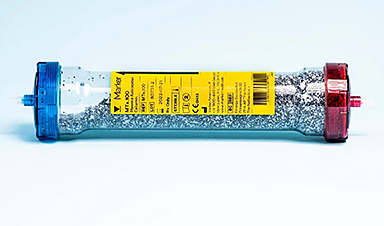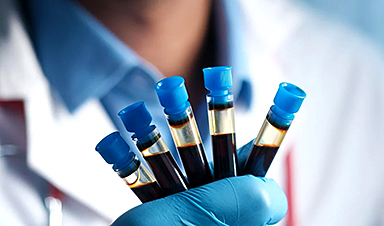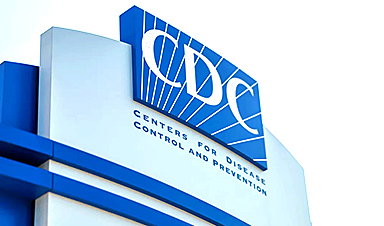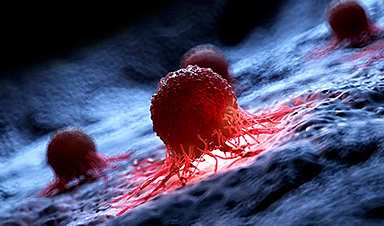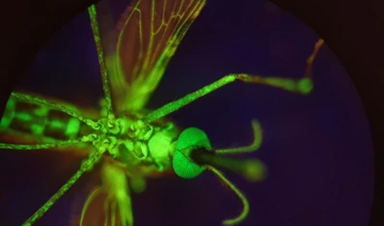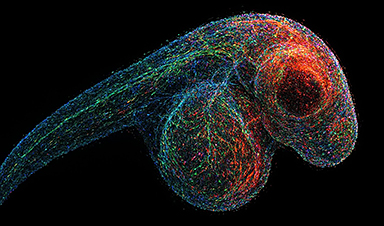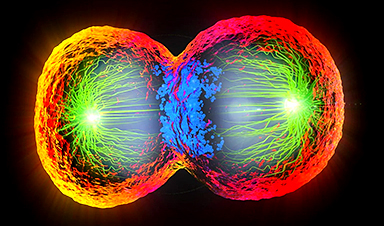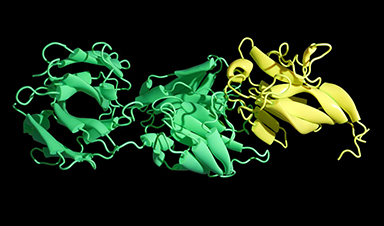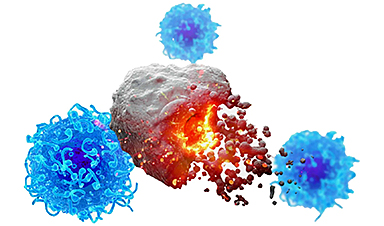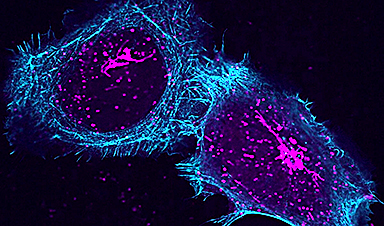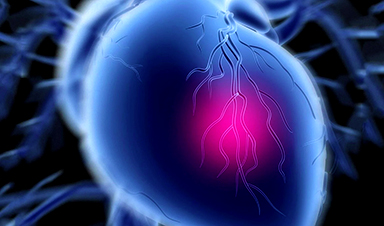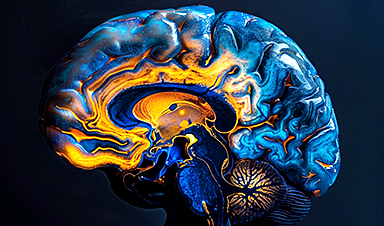It has been 30 years since the last new class of antibiotic was introduced to the market. All the existing drugs are essentially variations on a theme: they kill bacteria, in similar ways. Some burst cells walls, others block DNA replication.
But the bacteria are swiftly evolving to survive those chemical attacks – and as they survive, they become virulent superbugs. Without new antibiotics, by 2050 the death toll from drug-resistant infections is projected to reach 10 million people a year, making the coronavirus pandemic seem almost quaint.
This is why scientists at Plymouth University have been searching the cold, dark abyss of the north Atlantic – where they have found sponges that contain powerful molecules capable of killing those superbugs.
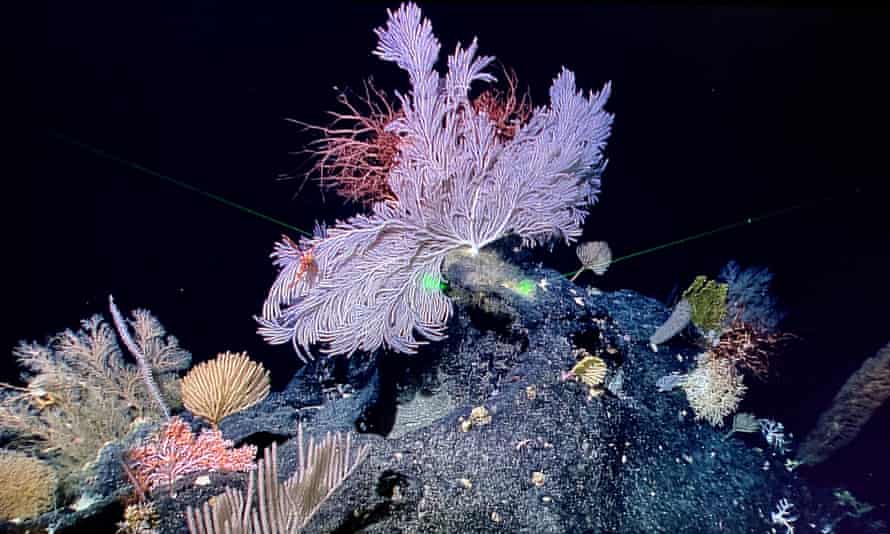
Kerry Howell, professor of deep-sea ecology, and her colleagues have been carefully collecting specimens of these plant-like animals, bringing them back to the lab and testing pulverised extracts against stubborn, disease-causing bacteria. Among the deep-sea molecules, they are finding promising bactericidal novelties.
“We don’t actually know exactly what they are yet,” says Prof Mat Upton, a microbiologist who leads the laboratory side of the biodiscovery programme at Plymouth. “We’ve got compounds that kill bacteria that we want to try to kill, and we have a pretty good idea that they are new compounds. It is early, but things are progressing through the pipeline.”
The hit rate for finding powerful and useful new compounds is proving to be especially high among animals of the deep sea. Hundreds of biologically active compounds have been found at the bottom of the ocean, some already in widespread use. Enzymes found in bacteria living around hydrothermal vents are even being used in tests for the Covid virus.
Yet novel antibiotics and an untold variety of beneficial molecules could easily be wiped out if ecosystems around vents and elsewhere on the ocean floor were to be destroyed by deep-sea mining, which could go ahead in less than two years. Even after 40 years of scientific research since hydrothermal vents were first found, a tremendous amount is still being discovered about these extreme ecosystems, which thrive in scorching, toxic waters pouring through cracks in the deep seabed, miles underwater.
Howell says: “Part of the big concern that all deep-sea ecologists have is that we know just how little is known about these areas and we are desperately trying to play catch-up with the [deep-sea mining] industry. To my mind, that’s the wrong way round. We ought to be finding out about these places before we even consider mining them.”
One of the potential targets for deep-sea mining is the south-east Atlantic abyss, where Howell is planning her next expedition, along with South African colleagues. “It’s one of the least-explored parts of our planet. There’s really very little data,” she says .
News
This Startup Says It Can Clean Your Blood of Microplastics
This is a non-exhaustive list of places microplastics have been found: Mount Everest, the Mariana Trench, Antarctic snow, clouds, plankton, turtles, whales, cattle, birds, tap water, beer, salt, human placentas, semen, breast milk, feces, testicles, [...]
New Blood Test Detects Alzheimer’s and Tracks Its Progression With 92% Accuracy
The new test could help identify which patients are most likely to benefit from new Alzheimer’s drugs. A newly developed blood test for Alzheimer’s disease not only helps confirm the presence of the condition but also [...]
The CDC buried a measles forecast that stressed the need for vaccinations
This story was originally published on ProPublica, a nonprofit newsroom that investigates abuses of power. Sign up to receive our biggest stories as soon as they’re published. ProPublica — Leaders at the Centers for Disease Control and Prevention [...]
Light-Driven Plasmonic Microrobots for Nanoparticle Manipulation
A recent study published in Nature Communications presents a new microrobotic platform designed to improve the precision and versatility of nanoparticle manipulation using light. Led by Jin Qin and colleagues, the research addresses limitations in traditional [...]
Cancer’s “Master Switch” Blocked for Good in Landmark Study
Researchers discovered peptides that permanently block a key cancer protein once thought untreatable, using a new screening method to test their effectiveness inside cells. For the first time, scientists have identified promising drug candidates [...]
AI self-cloning claims: A new frontier or a looming threat?
Chinese scientists claim that some AI models can replicate themselves and protect against shutdown. Has artificial intelligence crossed the so-called red line? Chinese researchers have published two reports on arXiv claiming that some artificial [...]
New Drug Turns Human Blood Into Mosquito-Killing Weapon
Nitisinone, a drug for rare diseases, kills mosquitoes when present in human blood and may become a new tool to fight malaria, offering longer-lasting, environmentally safer effects than ivermectin. Controlling mosquito populations is a [...]
DNA Microscopy Creates 3D Maps of Life From the Inside Out
What if you could take a picture of every gene inside a living organism—not with light, but with DNA itself? Scientists at the University of Chicago have pioneered a revolutionary imaging technique called volumetric DNA microscopy. It builds [...]
Scientists Just Captured the Stunning Process That Shapes Chromosomes
Scientists at EMBL have captured how human chromosomes fold into their signature rod shape during cell division, using a groundbreaking method called LoopTrace. By observing overlapping DNA loops forming in high resolution, they revealed that large [...]
Bird Flu Virus Is Mutating Fast – Scientists Say Our Vaccines May Not Be Enough
H5N1 influenza is evolving rapidly, weakening the effectiveness of existing antibodies and increasing its potential threat to humans. Scientists at UNC Charlotte and MIT used high-performance computational modeling to analyze thousands of viral protein-antibody interactions, revealing [...]
Revolutionary Cancer Vaccine Targets All Solid Tumors
The method triggers immune responses that inhibit melanoma, triple-negative breast cancer, lung carcinoma, and ovarian cancer. Cancer treatment vaccines have been in development since 2010, when the first was approved for prostate cancer, followed [...]
Scientists Uncover Hidden Protein Driving Autoimmune Attacks
Scientists have uncovered a critical piece of the puzzle in autoimmune diseases: a protein that helps release immune response molecules. By studying an ultra-rare condition, researchers identified ArfGAP2 as a key player in immune [...]
Mediterranean neutrino observatory sets new limits on quantum gravity
Quantum gravity is the missing link between general relativity and quantum mechanics, the yet-to-be-discovered key to a unified theory capable of explaining both the infinitely large and the infinitely small. The solution to this [...]
Challenging Previous Beliefs: Japanese Scientists Discover Hidden Protector of Heart
A Japanese research team found that the oxidized form of glutathione (GSSG) may protect heart tissue by modifying a key protein, potentially offering a novel therapeutic approach for ischemic heart failure. A new study [...]
Millions May Have Long COVID – So Why Can’t They Get Diagnosed?
Millions of people in England may be living with Long Covid without even realizing it. A large-scale analysis found that nearly 10% suspect they might have the condition but remain uncertain, often due to [...]
Researchers Reveal What Happens to Your Brain When You Don’t Get Enough Sleep
What if poor sleep was doing more than just making you tired? Researchers have discovered that disrupted sleep in older adults interferes with the brain’s ability to clean out waste, leading to memory problems [...]

